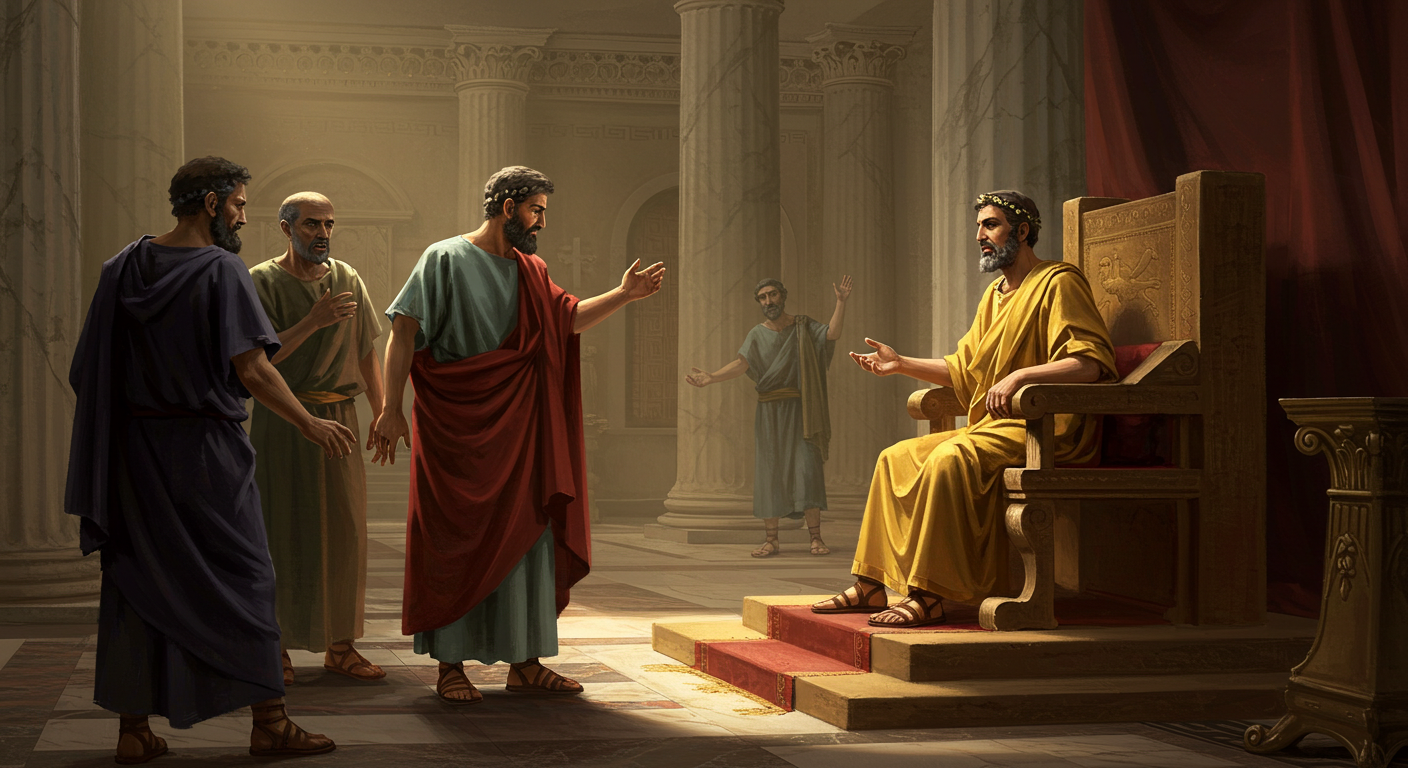Explore the transformation of Sergius Paulus, whose conversion in Acts sparked early Christian growth, highlighting his significant cultural and spiritual impact.
The Conversion of Sergius Paulus in Acts: A Catalyst for Early Christianity
In the diverse tapestry of the early Christian church, numerous characters emerge whose stories have left lasting impressions. Among these is Sergius Paulus, a relatively lesser-known figure whose conversion played a critical role in the expansion of Christianity. By delving into his story, we can uncover the broader implications his faith had on the nascent Christian community and explore how it still resonates today.
Introduction
Let’s journey into the life of Sergius Paulus, a Roman proconsul described in the Book of Acts. At first glance, Sergius Paulus represents the quintessential Roman of the era—a man of power, intellect, and influence. As a Gentile, his background underscores the fascinating intersection between the Roman world and the fledgling Christian faith. His conversion, documented in the early chapters of Acts, provides a snapshot of how the message of Christianity began to transcend cultural and religious boundaries during its formative years.
The backdrop to Sergius Paulus’s story is pivotal; it occurs in the region of Cyprus, where Paul and Barnabas embarked on their first missionary journey. Their mission was to spread the message of Jesus, and it was within this context that they encountered Sergius Paulus. This moment reveals much about the early church’s mission and the strategic significance of engaging influential individuals within society.
Biblical Account
As recorded in Acts 13:6-12, Paul and Barnabas arrived at Paphos in Cyprus, where they met Sergius Paulus, a man described as intelligent and eager to hear the word of God. His curiosity about the teachings of Jesus signifies a remarkable openness to new ideas, even those that diverged from the dominant Roman religious practices of the time.
The narrative takes a dramatic turn with the presence of Elymas, the sorcerer, who attempted to dissuade Sergius Paulus from the Christian faith. Paul’s firm confrontation of Elymas, and the subsequent blinding of the sorcerer, underscores the divine power accompanying the apostles’ mission. Sergius Paulus’s conversion followed this display of spiritual authority, marking a pivotal moment in his personal journey and in the broader spread of Christianity.
This encounter wasn’t merely a conversion; it was a turning of the tide—an influential Roman official embracing the fledgling faith, lending it credibility and opening doors previously thought closed.
Significance in the Early Church
The conversion of Sergius Paulus was more than just a personal awakening; it served as a significant catalyst for early Christianity. His acceptance of the faith represented a potent symbol to other Gentiles, demonstrating that the Christian message was for all people, regardless of cultural or religious background. The Roman Empire, vast and interconnected, required pivotal figures like Sergius Paulus to help leverage its structures for spreading new ideologies.
By embracing Christianity, Sergius Paulus, in a way, offered the early church a badge of legitimacy, signaling that its teachings resonated beyond the Jewish community. This shift had profound implications. It paved the way for subsequent missions to Gentile regions and set a precedent for engaging other influential figures in the empire.
Theologically, Sergius Paulus’s conversion underscores the universality of the Christian message, a theme reverberating throughout the New Testament. His story exemplifies how God’s grace extends beyond boundaries, reaching individuals society might least expect.
Lessons from His Story
From Sergius Paulus’s story, we glean powerful lessons about openness, transformation, and influence. His inquisitive nature serves as a reminder of the importance of curiosity and willingness to explore new faith dimensions. In our journey, we can emulate Sergius Paulus’s readiness to question, seek, and embrace transformative truth.
Moreover, his story challenges modern Christians to consider the role of influence in sharing the faith. Sergius Paulus’s conversion underscores that while faith is personal, it also has the potential to inspire and change the broader community. Thus, believers today are encouraged to think of ways their faith can act as a catalyst for positive transformation in their circles.
Finally, the story invites reflection on resilience and faith’s power to navigate opposition. Elymas the sorcerer represents obstacles—both external and internal—that might seek to hinder spiritual growth. However, with divine guidance and strength, these obstacles can be overcome.

Related Bible Passages
To gain deeper insight into the themes surrounding Sergius Paulus’s conversion, consider exploring these related Bible passages:
- Acts 10:34-35: Peter’s realization that God shows no favoritism.
- Romans 1:16: Paul’s declaration of the gospel being the power of God for salvation to everyone who believes—first to the Jew, then to the Gentile.
- Galatians 3:28: The unity and equality found in Christ.
- Acts 19:17: An example of how fear and respect for God spread due to witnessing His power.
Conclusion
The conversion of Sergius Paulus serves as a crucial reminder of how God’s message transcends cultural and societal boundaries. His story invites us to reflect on the dynamic power of faith in bringing about transformative change. As we ponder his influence on early Christianity, let us recognize the ongoing call for inclusivity and the courageous sharing of the gospel today. This invites us to a pertinent question: How might our openness to faith and willingness to engage with others serve as catalysts for spiritual growth and the expansion of God’s kingdom?
Acknowledgment: All Bible verses referenced in this article were accessed via Bible Gateway.
As a ClickBank Affiliate, I earn from qualifying purchases.








